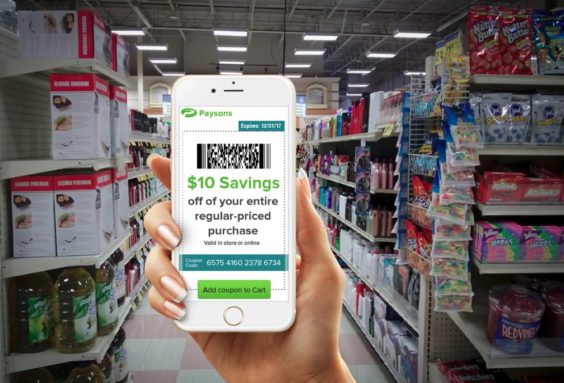
We may be living in a digital age, but studies and surveys continue to show that shoppers prefer paper coupons. A new survey, however, indicates that shoppers may be slowly changing their minds, with more of them warming to mobile coupons delivered via text messages.
And that’s especially good news if you’re a company that specializes in sending mobile coupons via text messages.
The mobile marketing company CodeBroker has released the results of a survey it commissioned about shoppers’ coupon use. “We were prompted to sponsor research on mobile coupons knowing how dominant smartphones are in the lives of people everywhere,” said CodeBroker CEO Dan Slavin.
What they found was that the majority of shoppers still prefer paper coupons – by a slim margin, according to their findings – with 53% saying they’d rather use paper coupons and 47% opting for mobile coupons.
But when asked their top frustration with coupons, an overwhelming 77% said “I don’t have them when I need them”.
So what if there was a way to have coupons handy whenever you need them? Enter the mobile coupon! “With nearly 90% of Americans now owning a phone that can access mobile coupons, and nearly half of consumers now preferring mobile coupons, retail and brand marketers should all be taking a look at delivering mobile coupons,” CodeBroker’s report reads.
There are many different types of paperless coupons, though. CodeBroker focuses on the types that are accessible through your phone. 15% of survey respondents said they prefer to store their mobile coupons in a mobile wallet, while 28% want to save their coupons in a mobile app. A majority, 57%, want to have mobile coupons accessible via a link delivered to them via text.
Texts may seem slightly old-fashioned when mobile wallets and apps are arguably more modern and convenient. But texts can deliver something that the others can’t – coupons on demand, whenever you want them and only when you want them.
78% of shoppers said they are likely or very likely to redeem a coupon that they request in response to an ad, with most using that coupon within a week of receiving it. Interestingly enough, the main method shoppers use to learn about available mobile coupons is physical signage posted in a store. “In today’s digital world, it comes as a surprise that in-store signage still rules when it comes to offering coupons to customers,” the report reads. “This is good news for retailers that offer in-store marketing programs.”
Picture shopping at Target, for example, when you see a sign on a shelf telling you there’s a mobile coupon available, and all you have to do is send a text to Target to get that coupon delivered to your phone instantly. Other retailers might force you to go find the store circular and cut out a paper coupon, or to remember to bring a coupon from home. And that doesn’t help when it comes to that couponing problem of “I don’t have them when I need them”.
So when you put it that way, what’s not to like? Coupons delivered on demand, via text, sound pretty good.
“Consumers are embracing mobile for the entire ‘coupon’ experience: access, storage and redemption,” CodeBroker’s report concludes. “Mobile coupons not only give more and more consumers what they want, but they also present marketers with new and improved possibilities for collecting data, to track usage, and then using that data for ongoing targeting.”
So the next time you’re in the store and realize that the perfect coupon for your planned purchase is still in the Sunday coupon insert that’s sitting on your kitchen table, you might wish you could have that coupon teleported directly to you. Since that can’t happen, the next best thing might be to have a mobile coupon texted directly to your phone upon request.
Paper coupons still have their place, and they still have fans among shoppers who like keeping it old school. But if companies like CodeBroker have their way, mobile coupons just might stake an even greater claim on the future of couponing.
Image sources: CodeBroker / Nicola since 1972










